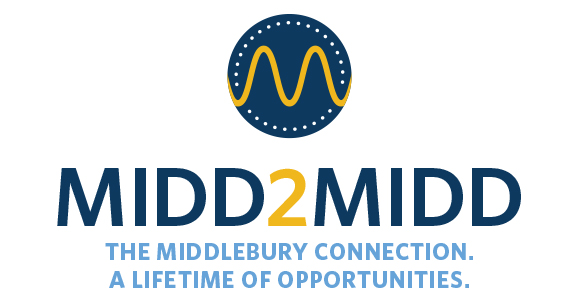
David Temple is currently the Head of Content, Creator, and HomefeedProduct at Pinterest. He graduated from Middlebury in 2005, with a BA degree in History and Political Science. As a seasoned product manager, David has written a Quick-Guide for people interested in pursuing a career in product management. You can check out his Quick-Guide here.
Thanks for taking the time to speak with us. You’ve worked at think tanks and small companies before starting your own company and now being Head of Content at one of the largest image engines. Can you provide an overview of your career path after graduating from Middlebury in 2005? After graduating Middlebury as a Feb, I had no idea what to do. I remember contacting different alums and someone telling me, “You should check out product management, I think you’d really enjoy it. It’s a dynamic role with many different responsibilities, but it’s still largely technical.” I wrote it all down on my notes, but I didn’t think anything about it till a couple years later when I started to work with product managers.
I spent the first year after graduation trying to map out what I wanted to pursue. I ended up moving to New Zealand and picked fruit on a cherry orchard for a little while. I bounced around in other small roles before moving with my wife to New Delhi, working for a think tank called the Institute for Peace and Conflict. There, I studied the natural gas trade of India in partnership with Iran.
After a while, I moved back to the US and started as an analyst at Gerson Lehrman Group, where I collaborated with hedge fund managers. Although it wasn’t a perfect fit, it showed me the importance of diving in and getting my foot in the door. I was primarily an analyst, but I found myself often going to the technology side of business and assisting with product development and engineering. Eventually, I got to know people in that field better and transferred into product management. Right after I transitioned roles in 2008, the stock market crashed. All of our clients disappeared, and I got laid off.
In retrospect, there was value in this unexpected turn of events. It gave me an awareness that things can change at any minute and a hunger to seek out new opportunities. Fortunately, the head of product management at Gerson had started a small company called LiveIntent and I went to work with them. I was actually the first employee there and everyday I learned something new. While he was running the business side of things, I ran the product and engineering. When I left, the company had over 30 employees and now it’s upwards of a hundred.
I then came out to San Francisco and worked for a company called Klout. It was a fun place to work because it was the classic Silicon Valley story: the company was growing exponentially before a sudden crash. The CEO had to sell the company, and that’s when I decided to start my own business. I spent three years working on that and had the time of my life. Although we were not as successful as we hoped, we were able to give the investors their money back by selling the company. Shortly after, I made the move to Pinterest. I’ve been running the Content Creators and Homefeed teams for the past couple of years.
For Middlebury students interested in exploring a career path in product management or in an adjacent area, what do you think are the most important skills they should have? How would you recommend them to get their foot in the industry? The interesting thing about product management is that very few people start as product managers — the best product managers tend to be in another career before switching to product management. While there are associate product management positions, it’s more typical for product managers to start as engineers or designers. A product manager typically gets described as being the “CEO” of a small part of the company. For that reason, you tend to do well in it if you’re the “CEO” of something you know really well.
In my case, my first product management position at Gerson Lehrman included building internal tools used by their analysts (the position I previously held). I felt confident going into that role because I knew what the customers wanted since I was one of those customers for 18 months. I think this advice is true for different fields. If you can specialize in something and find a way to be a product manager for what you specialize in, that is a natural way to enter the profession.
In terms of skills most necessary in product management, the industry looks for people taking an analytical approach to problems. But I’d say the key skill is having a high degree of empathy for the customer. Most of the other things you can learn, but empathy is more difficult. To my previous point, if you start in another position, you can gain empathy naturally. The most successful product managers I’ve seen spend a lot of time with their customers and understanding their problems. They ask “Why” so many times that it begins to get a bit uncomfortable, but that’s when you know that you’ve asked the question the right amount of times. I would also recommend the books by Marty Cagan, specifically the book “Inspired.” I think of him as the godfather of product management and anyone interested in the profession could learn a lot from his writing.
What was the most meaningful thing you learned at Middlebury? It’s hard to say this without it sounding scripted but it’s true: Middlebury taught me to love learning and be curious. There, I was able to pursue things which genuinely interested me, both personally and academically. So many of the things I’m grateful for now have come from that curiosity, which can be traced back to Middlebury’s professors and courses. I remember being encouraged to take a course on Russian Nihilism for one J-Term. While that’s something I wouldn’t have ever expected to be interested in, I loved it! The curiosity Middlebury instilled in me plays out in my current job: When something about my product feels off, even if I may not know how to solve it, I know how to analyze the problem. Middlebury taught me to have the curiosity and confidence to say, “I’m going to start poking at the problem and test different approaches.” Eventually through persistent trial and error, I’ll get to the kernel of the truth.
With COVID changing many industries, do you have any advice for Middlebury students or alums to navigate their career paths? As someone working in the technology industry, I feel that many things will probably not go back to normal. The way we think of traditional industries will also be different. The current pandemic has created a difficult moment for all of us, but it also presents enormous opportunities. One of the hardest things of starting a new product or company is making folks feel comfortable with starting something new. All of a sudden, everyone has to try a new way of doing things. If you have always wanted to start your own business, the current time may actually be the best time. I’m sure you’ll see some next wave of companies come out of this moment. If you can, right now is the time to dive in and take a chance.
This article was written by Arturo Simental and edited by Xiaoli Jin

This series is coordinated by Xiaoli Jin ’19. Look for more alumni profiles each week. You can connect with Xiaoli on LinkedIn.
If you are interested to interview alumni and contribute to this series, please contact Xiaoli Jin 2019′ on Midd2Midd.

In this time of social distancing, we are all looking for new ways to stay connected, and Midd2Midd is one of them! Midd2Midd connects Middlebury students, alumni, and parents, supporting mentoring, networking, and engagement within the Middlebury community around the world. Midd2Midd is your place to make things happen. Simply complete your profile, create a customized search, and begin to network!